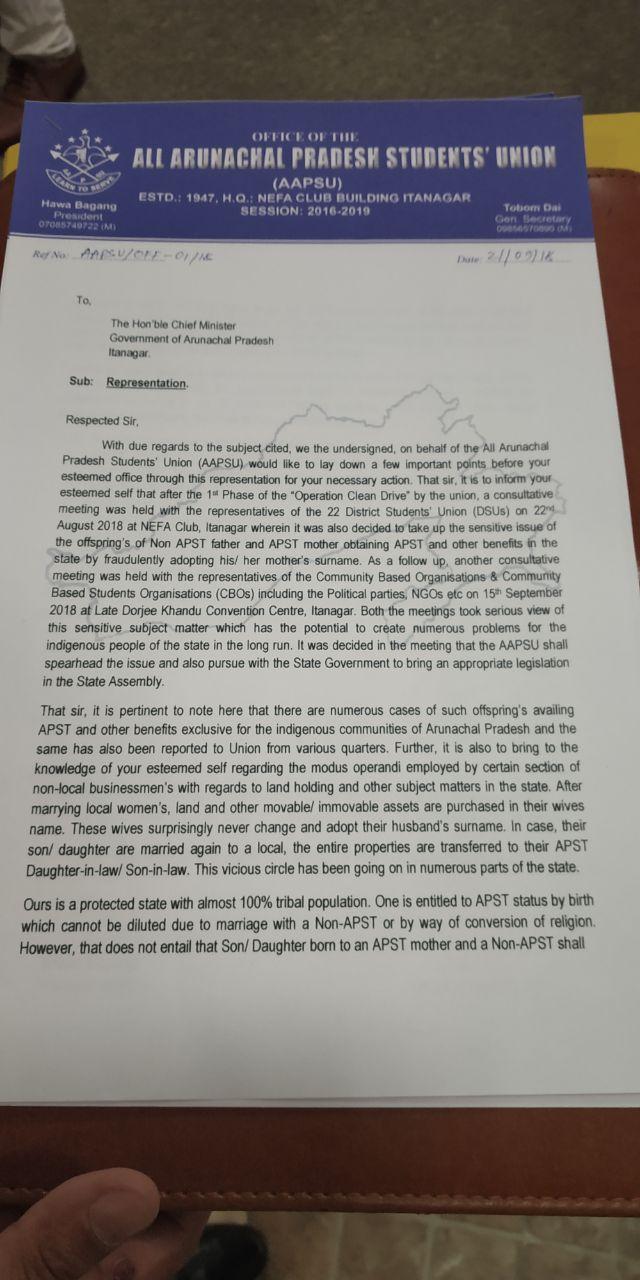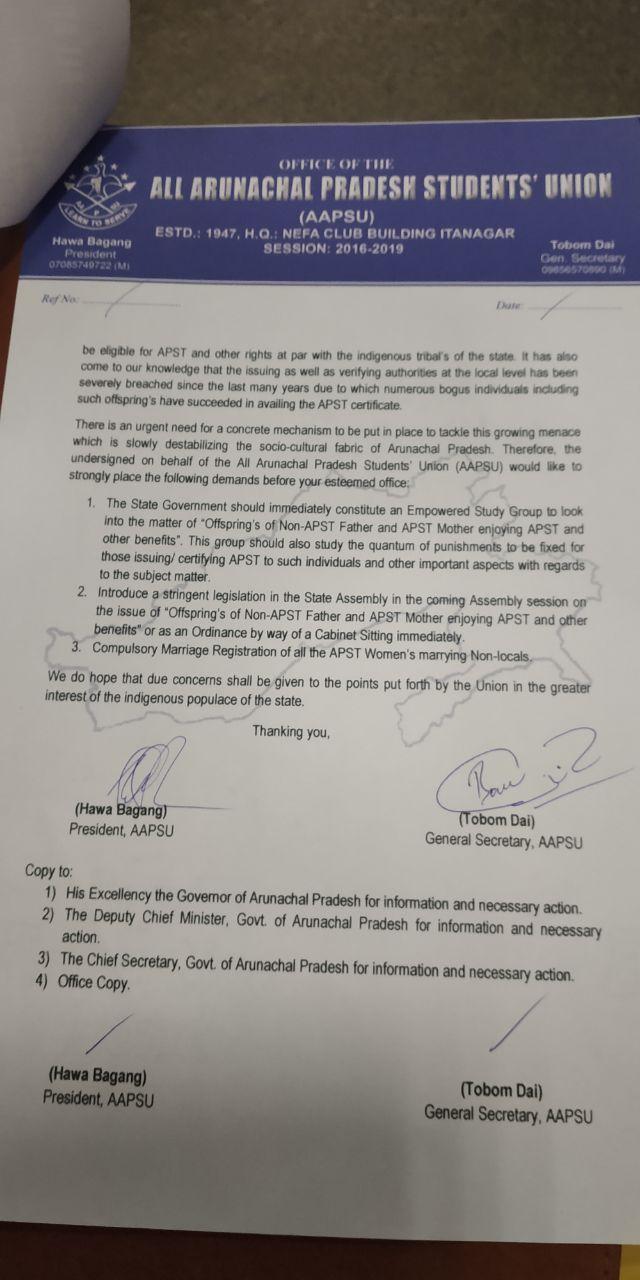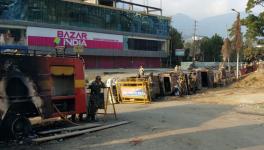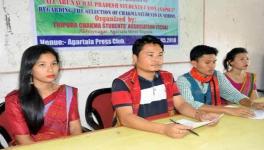AAPSU Submits Memorandum to CM on APST Issue
Last evening, members of the All Arunachal Pradesh Students’ Union (AAPSU) met the Chief Minister, Pema Khandu regarding the Arunachal Pradesh Scheduled Tribe (APST) certificate issue and submitted a memorandum. The issue centres around the fact that there have been several mixed marriages wherein one of the parent is not an APST certificate holder. However, AAPSU has taken a stand on those marriages where the mother is an APST certificate holder and the father is not.
Also read: Can AAPSU Find a Balance Between Tribal Rights and Lineage?
In this regard their memorandum placed three demands before the Chief Minister:
-
Conduct a study into the issue of the children of non-APST fathers and APST mothers enjoying the benefits of APST status, as well as to fix the quantum of punishment for such cases.
-
Introduce a “stringent legislation” in the Assembly concerning this issue.
-
Compulsory marriage registration of all APST women marrying non-locals.
The memorandum mentioned that following phase 1 of AAPSU’s ‘Operation Clean Drive’ on August 1, a consultative meeting was held on August 22 with the heads of 22 District Students’ Unions in Itanagar. At the meeting, the practice of the children of non-APST fathers applying for and receiving APST certificates on the basis of their mother’s status was discussed. A follow up meeting was held on September 15, wherein members of Non-Government Organisations (NGO), Community Based Organisations (CBO) and political parties participated.
According to the memorandum, “Both meetings took serious view of this sensitive subject matter which has the potential to create numerous problems for the indigenous people of the state in the long run. It was decided in the meeting that the AAPSU shall spearhead the issue and also pursue with the State Government to bring an appropriate legislation in the State Assembly.”
Also read: Why ILP and NRC Demands Have to be Seen Together
The two issues highlighted in the memorandum were: that the children of non-APST fathers were availing the ST benefits in terms of reservation in education and employment, and that “certain sections of the non-local businessmen ... After marrying local women, land and other moveable/immovable assets are purchased in their wives’ name. These wives surprisingly never change and adopt their husband’s surname. In case, their son/daughter are married again to a local, the entire properties are transferred to their APST Daughter-in law/Son-in-law. This vicious circle has been going on in numerous parts of the state.”


What appears from this memorandum is that there is an apprehension that the children of such mixed marriages may have an unfair advantage over others due to their father’s position – either monetarily or due to educational qualifications. The other issue which perhaps requires more introspection is with regard to land. On one hand, the union has alleged that non-local businessmen are buying land in their wives’ names. However, regarding this same issue, it appears that the land is not actually transferred to the children but to their children’s APST spouse. This loophole is also provided for in the Benami Transactions (Prohibition) Act, 1988, where property bought in the name of a wife or an unmarried daughter is not to be treated as benami transaction.
Despite the obvious patriarchal base of AAPSU’s stand, the concerns raised by AAPSU to an extent are genuine. However, the limitation to any law which adheres to their demands entirely is that it is likely to be struck down or read down if challenged in court. In 2012, the Supreme Court in Rameshbhai Dabhai Naika v. State Of Gujarat & Ors held that there is no hard and fast rule that a child can only inherit their father’s status.
The Court stated that:
“The determination of caste of a person born of an inter-caste marriage or a marriage between a tribal and a non-tribal cannot be determined in complete disregard of attending facts of the case. In an inter-caste marriage or a marriage between a tribal and a non-tribal, there may be a presumption that the child has the caste of the father. This presumption may be stronger in the case where in the inter-caste marriage or a marriage between a tribal and a non-tribal, the husband belongs to a forward caste. But by no means the presumption is conclusive or irrebuttable and it is open to the child of such marriage to lead evidence to show that he/she was brought up by the mother who belonged to the scheduled caste/scheduled tribe. By virtue of being the son of a forward caste father he did not have any advantageous start in life but on the contrary suffered the deprivations, indignities, humilities and handicaps like any other member of the community to which his/her mother belonged. Additionally, that he was always treated a member of the community to which his mother belonged, not only by that community but by people outside the community as well.”
Perhaps as a first step, AAPSU should petition the state government to pass a civil law regarding marriage – including the rights and liabilities of partners – to serve as a bridge between the traditional practices and modern principles.
Get the latest reports & analysis with people's perspective on Protests, movements & deep analytical videos, discussions of the current affairs in your Telegram app. Subscribe to NewsClick's Telegram channel & get Real-Time updates on stories, as they get published on our website.




















